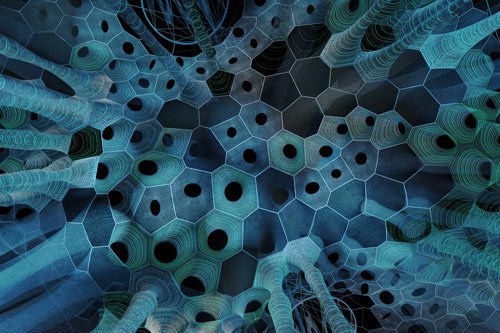Designing Complexity: Pushing the Limits of Big Data
Mon, Apr 1 2019, 6PM - 7:30PM
1111 Eighth Street | Timken Lecture Hall, San Francisco, CA, 94107 View map
Part of event series: Architecture Lecture Series Spring 2019

Organized by
Architecture Lecture Series
Event description
Christina Cogdell, Ph.D., UC Davis Department of Design
Contemporary scientific beliefs – like eugenics in the 1930s and complexity theory and synthetic biology today – inflect theories and practices of design, which in turn then reify popular scientific beliefs to a broader public. This talk examines how generative designs based on algorithmic techniques and fitness optimization – in architecture, product design, and even platforms like Pandora radio, The Music Genome Project – potentially inure the public to ongoing genetic determinism and eugenic design strategies. Will generative architecture and design move beyond this to incorporate complexity into its computational approaches as well as its public discourse, considering “genes” in interaction with the environment (aka, epigenetics, exposomics and multispecies ecologies)? To do so requires computational techniques that push the limits of big data. Integrating continuously variable environmental data into the coding of what heretofore has been structured as gene centric systems – whether it be for designing engineering solutions for complex architectural structures, or modeling smart buildings in interaction with their surroundings – requires shifts in both theory and practice and entails the use of innumerable sensors and omnipresent signaling. These computational developments, if integrated across all sectors, likely require more quartzite and rare earth metals for the production of chips and computers than we have at our disposal, highlighting the need to develop alternative computing technologies while imagining alternative futures.
Entry details
Free and open to the public.